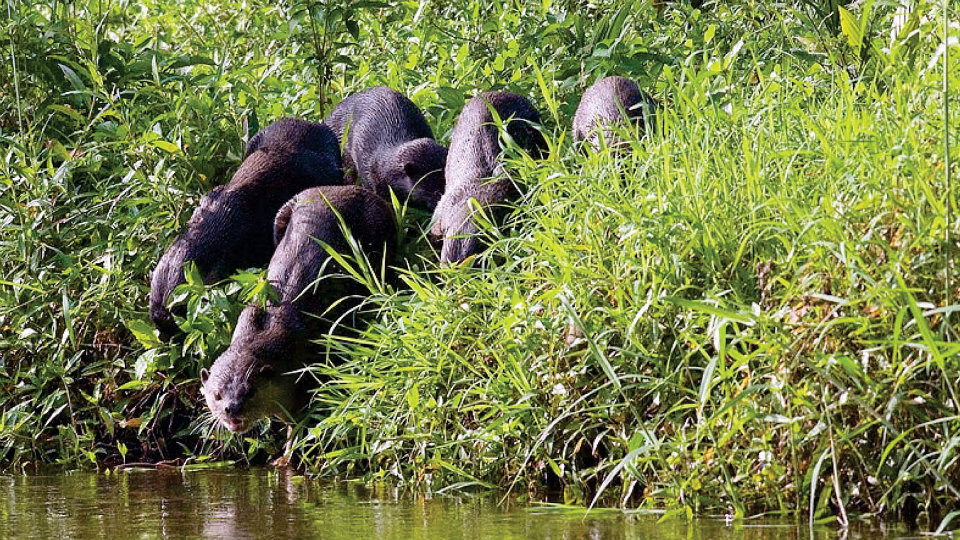Mysuru: “Otters are indicative species which are always giving us messages on the level of pollution and pesticides in river,” said Gopakumar Menon, Executive Director and Co-Founder of Nityata River Otter Conservancy.
He was speaking on the subject ‘Why Otters Matter’ at the 19th Conservation Talk at Mysuru Zoo here yesterday.
Delivering his talk on Smooth- Coated Otters, Gopakumar said that these otters are found in decent numbers in Ranganathittu Bird Sanctuary and along the Cauvery River basin. They feed mainly on fish and each otter weighs between 8 to 11 kgs.
Stating that Otters live in groups, Gopakumar said that the group is headed by an Alpha Male which patrols its territory within a limited area and use hi-pitch squeak sound for communication. He said that Cauvery River is a very beautiful habitat for Smooth-Coated Otters as the river is not so polluted.
He said that tree cover on river banks were very important for these otters to survive and added that otters live in holts (Den) between the roots of large trees on river banks and they work as a team when it comes to chasing away predators and are supportive to each other as they bring in food for injured otters and take of them.
“The fact is, otters don’t want to have anything to do with you. But they’re extremely territorial. Though their tendency when confronted is to dive and flee, otters can be aggressive when defending their young ones or a food source from a perceived threat,” Gopakumar said.
He said that otters are one of the most intriguing semi aquatic mammals, living both in water and land and are living a life of mystery, disguise and concealment. He further said that between 1970s to around 2005, smooth-coated otters across India were poached by professional gangs of poachers, who used information provided by local fishermen on otter presence, laid traps for the animals and then clubbed them to death to meet the insatiable needs of the wildlife trade. Otter skin is used in the production of bags for the international market and transported along with tiger and leopard skins.
Various Threat
Stating that Smooth-Coated Otters have been classified as ‘Vulnerable; by the International Union for Conservation of Nature (IUCN) and are protected under Schedule II of the Wildlife Protection Act 1972, Gopakumar said that its numbers were declining due to various threats.
He attributed the declining number to poaching, conflicts with fishermen, destructive fish harvesting practices such as using dynamites, chemical poisoning (pesticides, copper sulphate and bleaching powder), sand mining and other such illegal means.
He said that by protecting Otters and crocodiles, we are actually protecting the river and added that we should protect the habitat and not just otters. Gopakumar said, “When we cannot clean our river, we have no rights to pollute it,” and added that the least one can do to protect otters is to not pollute our rivers.








Recent Comments